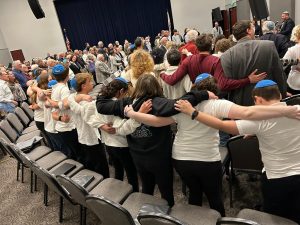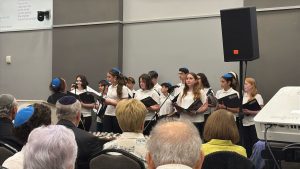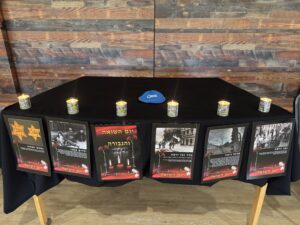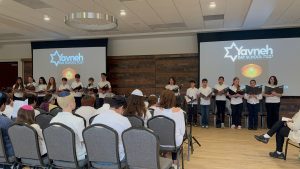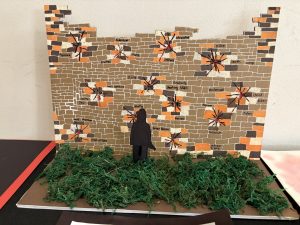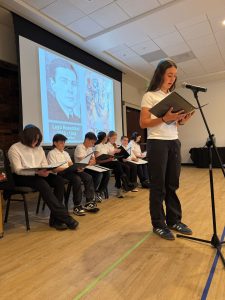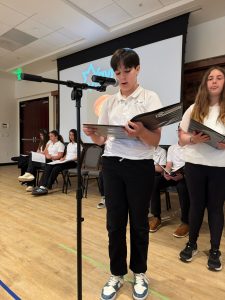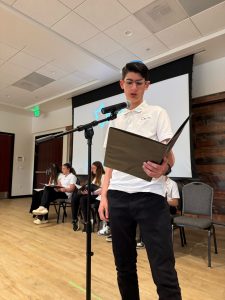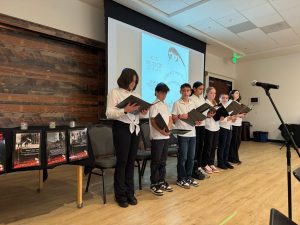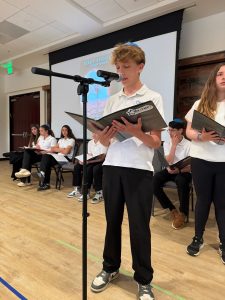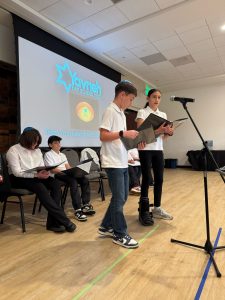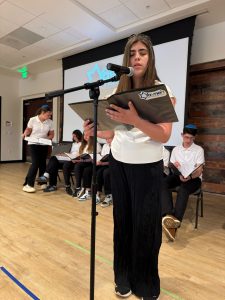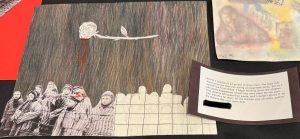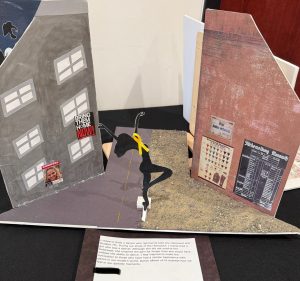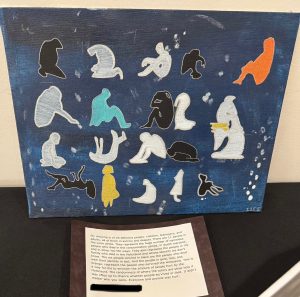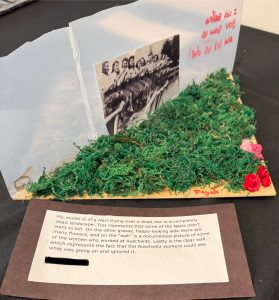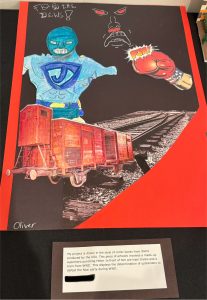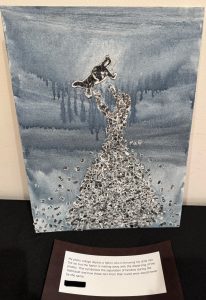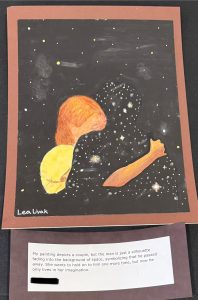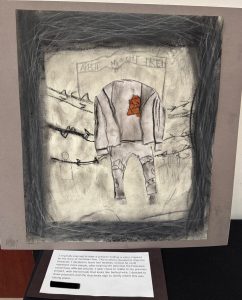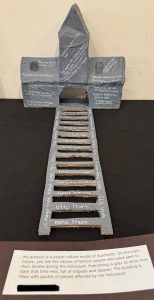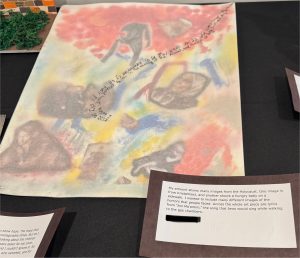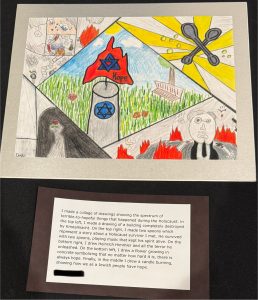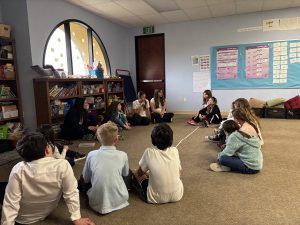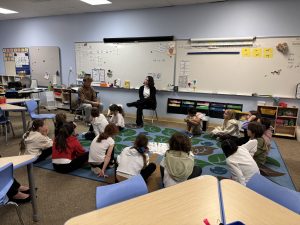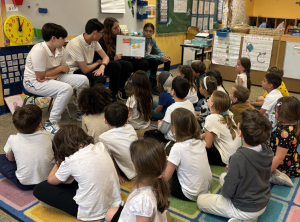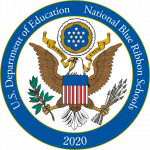There’s an indescribable feeling for a teacher when you realize your students have truly internalized your teaching. When you see and hear your message spoken in a softer and younger voice, readily understood, clearly enunciated and most surely to be enacted upon.
Growing up as the granddaughter of Holocaust survivors in Melbourne, Australia, a community often characterized by survivors as, “the farthest corner away from Hitler’s Europe,” I never thought twice about what the Holocaust was in history, because in many ways it was still alive in front of me, in the form of my Zaida, Moshe. It was normal for me, a Jewish Day School Student and a Zionist Youth Group Leader, to attend memorial ceremonies with him, sing songs in Yiddish and Hebrew, and to never throw away crusts of bread because, “you never know when it may come again – we know now. We have Israel, but we need to always be ready.”
That reality, as normal as it seemed for me, I realized was not a given when I arrived here in California. In fact, shortly after beginning here at Yavneh, one of my very first classes was to teach seventh grade students Shoah and to prepare a ceremony with them.
“Seeing everybody come together as one community and remember and share stories about our past really meant something to me.” –Eva
“At the community Tekes, one of the most moving things for me was when so many people came up to light candles for those lost in the Holocaust. It really showed me how the Holocaust influences everyone, still today. That everyone lost family, and that this binds the Jewish community together – this will stick with me forever.” –Noah
It was then, preparing that first group of seventh graders and thinking about my own upbringing, that I asked about our students participating in the community commemoration, assuming every community around the world did the same. When I ventured the idea to the then administration, they were surprised – it hadn’t been done before. In 2015, Yavneh students began participating in the South Bay Community Holocaust Commemoration, the evening before delivering a tekes exploring their own learning the following morning.
“I saw an old lady who was recording us. I saw other people crying when they heard us sing that song and it felt meaningful for me to know that we had an effect on others. Learn as much as you can in this year because it will sit with you for the years to come.” –Nitzan
Last night, in front of a 400 strong person crowd here at our APJCC Auditorium, our seventh grade students, just as they have been every year, represented our school with dignity, grace, and clear anchoring not only in the facts and testimonies of the Shoah, but a determined sense of identity and purpose to teach about it.
All of these things and more were on full display this morning for our school ceremony. Our program has expanded across several subject areas, including ELA (English Language Arts), Social Studies, Art, and Science. Our Jewish identity is intertwined in every part of our learning.
The moment that brought tears to my eyes today, after the most incredible student run ceremony, was watching our students then go into lower school classrooms to teach what they believed to be the strongest message about the Shoah – be an upstander. Do something. Never Again means never again for anyone, ever.
“Preparing for the Yom HaShoah tekes is extremely hard work and entails a lot of responsibility. You will also have to face the horrific histories and the evil of humanity and do your best to try to prevent a similar event from occuring in the future. “ –Ayal
“I think the most meaningful thing to me about preparing and presenting the tekes was being able to recognize the true suffering of the Jews and actually understand everything and not just skim over it and then forget it. I can truly say that I understand and that I want to know more.” –Racheli
Thank you, Kitah Zayin, for making it clear that our Jewish future is in very good hands. Your message, your mission, and your meaning, are on full display for all to see.
“While preparing the tekes I felt very proud to be Jewish and proud to be representing my people by doing this very meaningful act of presenting a tekes to my community. And unfortunately with very few Holocaust survivors left, it’s important to remind people and pass on their stories for the next generations to know and learn about. “ –Lilah
In the words of Mordechai Anilewicz, leader of the Warsaw Ghetto uprising – Chazak Ve’Ematz – be strong and of good courage.
~Morah Jamie
